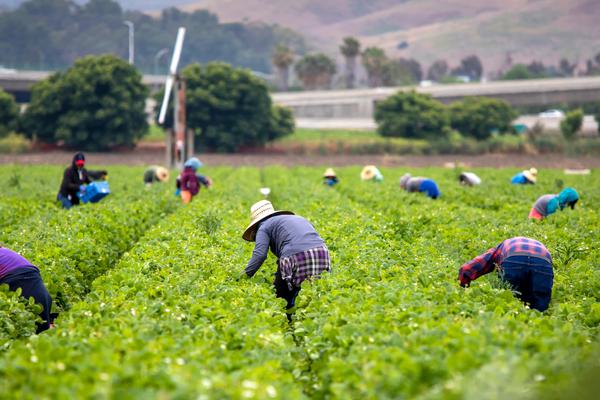The Case for an Australian Modern Slavery Act
27 February 2017

Australian consumers, businesses, and now lawmakers, are waking up to the brutal reality of modern slavery within Australia and the slave trade fuelling global supply chains.
Many people and organisations unwittingly benefit from modern slavery whether it is by purchasing seafood caught by enslaved Thai fishermen or using smart phones manufactured in Asia produced by forced labour.
As a member of the Asia Pacific region, Australians often do business with, travel throughout and buy many goods and services from its neighbouring countries. Yet the region is also where a staggering 30 million people are subjected to modern slavery (Global Slavery Index, 2016). Many people and organisations unwittingly benefit from modern slavery, whether it is by purchasing seafood caught by enslaved Thai fishermen or using smart phones manufactured in Asia produced by forced labour. Within Australia, an estimated 4,300 people have been subjected to modern slavery in the past five years.
Modern slavery is a global phenomenon and demands a consistent global response. The Australian Government took a significant step forward recently, with the Attorney General announcing an inquiry into whether Australia should adopt a “Modern Slavery Act”. The inquiry refers to the UK Modern Slavery Act 2015 as a comparable base standard. The committee will look at the prevalence of modern slavery and review international best practices (from private and public sectors) when investigating supply chains for modern slavery. Implications for visa regime and federal compensation schemes for victims will also be considered.
Corporate engagement has significantly increased, with many companies seeing modern slavery as a business-critical issue.
Significantly, the committee will review how successful the UK legislation has been. One of its key features is section 54 which requires large organisations to annually report on steps taken to eradicate modern slavery from within the organisation itself, and its supply chains. Arguably, the success or failure of reporting laws such as Section 54 will be judged over the longer term. Most companies are at very early stages of what is largely retrospective reporting. Nonetheless, there are early indications that Section 54 has been a “game changer”. Corporate engagement has significantly increased, with many companies seeing modern slavery as a business-critical issue (ETI & Hult Corporate Leadership on Modern Slavery Report). Undeniably, legislation is a powerful tool to shape and change corporate behaviour.
Either way, Australians cannot afford to wait. With developments in the UK, as well as extensive US reform and emerging laws across the EU, the game has already changed for global corporates. Global corporates can no longer turn a blind eye to modern slavery. Indeed, almost 10% of Australian global corporates are already reporting under the UK law. To keep up with international standards and expectations, Australian reform is needed as a priority.
An Australian Modern Slavery Act would need to implement as a priority:
- Commissioner – appointment of an Anti-Slavery Commissioner to provide independent oversight and spearhead Australia’s efforts to eradicate modern slavery, with powers to monitor laws and hold business and the Government accountable.
- Modern Slavery Statements – large organisations to annually report on steps taken to eradicate modern slavery within their organisation and supply chains. Reporting laws level the playing field, so that companies doing the right thing are not undercut by unscrupulous competitors, and encourage a “race to the top” to drive up standards.
- Repository – creation and maintenance of a publicly accessible repository of all modern slavery statements filed each year, to ensure reporting laws are effective in bringing change and companies’ progress is measurable.
These are the top priorities to match international standards. But there are many other important issues which could also be addressed in an Australian “Modern Slavery Act”. Australia is well placed to learn from what works (and what doesn’t) from reforms overseas, and can demonstrate its own leadership on this critical issue by creating a framework that is suitable for the Australian context.
It’s time for Australia to act by developing new legislation and by working together with global partners committed to ending modern slavery.
The Australian Government has an opportunity to advance the legal framework domestically and set a standard in the region to protect the victims of this atrocious crime and eradicate modern slavery. Introducing a Modern Slavery Act is a powerful message to all Australians and companies that do business in Australia as well as in neighbouring regions that Australians will not stand by and ignore the millions subjected to modern slavery, whether at home or unseen in supply chains abroad. It’s time for Australia to act by developing new legislation and by working together with global partners committed to ending modern slavery.



